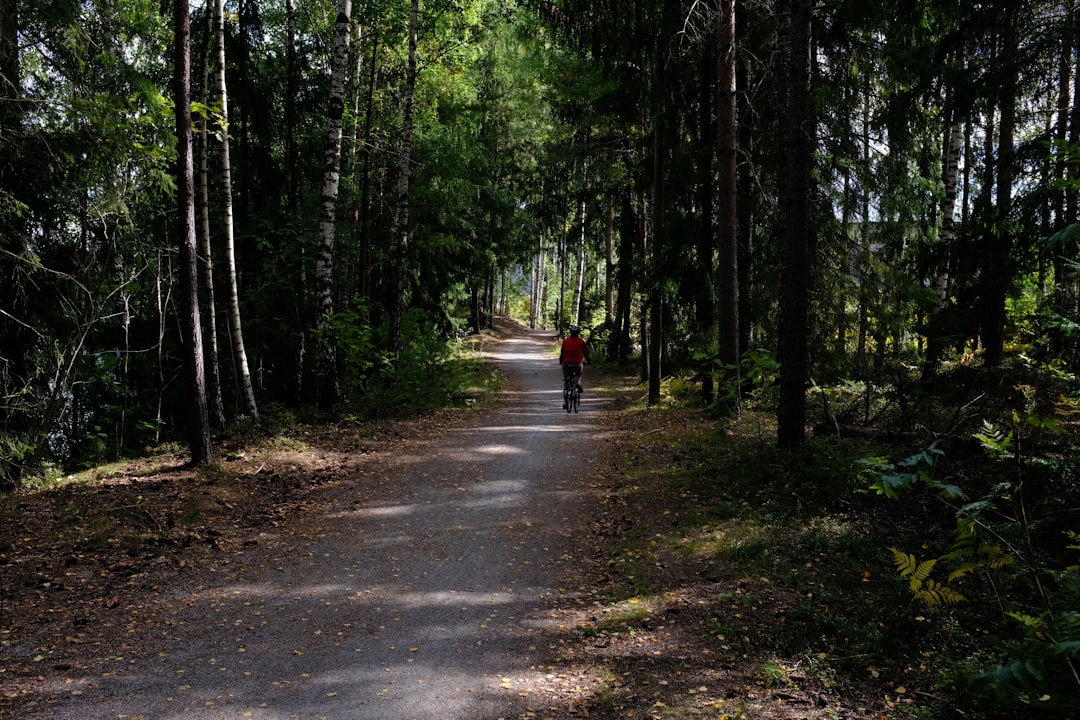When embarking on a journey to a new country, understanding the local customs and social norms is essential for a smooth transition. The Norway Relocation Group is here to assist you in navigating these cultural nuances, ensuring that your move to Norway is as seamless as possible. From the moment you arrive, you will encounter a unique blend of traditions and practices that define Norwegian society.
Greetings in Norway are typically warm yet understated, reflecting the country’s emphasis on equality and respect. A simple handshake is the most common form of greeting, accompanied by direct eye contact, which conveys sincerity and openness. In addition to handshakes, Norwegians may greet one another with a friendly “hei” or “hallo,” which translates to “hi” or “hello.” It is important to note that personal space is highly valued in Norwegian culture; therefore, while greetings are friendly, they are also respectful of individual boundaries.
The Norway Relocation Group can provide you with insights into these social customs, helping you to feel more at ease as you engage with locals. Understanding how to introduce yourself and navigate initial interactions will set a positive tone for your new life in Norway. Plan your relocation with confidence. Book a personal meeting with the Norway Relocation Group today.
Summary
- When greeting someone in the UK, a firm handshake and maintaining eye contact is the norm.
- Personal space is highly valued, so avoid unnecessary physical contact such as hugging or kissing when meeting someone for the first time.
- Punctuality is important in the UK, so always strive to be on time for appointments and meetings.
- When giving gifts, it is customary to reciprocate the gesture in the future, but extravagant gifts may make the recipient uncomfortable.
- Avoid discussing personal finances, religion, or politics in conversations, as these topics are considered taboo in British culture.
- Alcohol consumption is common in social events, but excessive drinking is frowned upon.
- When dining, wait to be seated and follow the host’s lead in terms of table manners and etiquette.
- British communication style tends to be indirect and polite, so it’s important to read between the lines and consider the context of the conversation.
- Humility and modesty are valued traits in the UK, so avoid boasting or showing off achievements.
- Outdoor activities and nature appreciation are popular in the UK, so be respectful of the environment and wildlife.
- Respect for equality and inclusivity is important, so be mindful of using inclusive language and treating everyone with respect.
Personal Space and Physical Contact
In Norway, personal space is regarded as a fundamental aspect of social interaction. Norwegians tend to maintain a comfortable distance during conversations, which can be quite different from cultures where close physical proximity is the norm. This preference for personal space reflects a broader cultural value of independence and self-reliance.
When engaging with others, it is advisable to respect this boundary; standing too close may be perceived as intrusive or overly familiar. Physical contact in social settings is generally limited to handshakes and occasional hugs among close friends or family members. It is not customary for Norwegians to engage in excessive physical displays of affection, especially in professional or formal contexts.
The Norway Relocation Group can help you understand these subtleties, ensuring that you approach social interactions with the right level of respect and awareness. By familiarising yourself with these norms, you will be better equipped to build meaningful relationships in your new environment.
Punctuality and Time Management

Punctuality is a cornerstone of Norwegian culture, reflecting the society’s deep respect for time and commitments. Being on time is not merely a courtesy; it is an expectation. Whether attending a business meeting or a social gathering, arriving punctually demonstrates reliability and respect for others’ time.
In Norway, lateness can be viewed as disrespectful, so it is advisable to plan your schedule accordingly to avoid any potential faux pas. The importance of time management extends beyond mere punctuality; it also encompasses the way Norwegians approach their daily lives. Many people adhere to a structured routine, balancing work and leisure effectively.
The Norway Relocation Group can assist you in adapting to this cultural emphasis on time management, providing tips on how to organise your day-to-day activities efficiently. By embracing this aspect of Norwegian culture, you will find it easier to integrate into both professional and social circles.
Gift Giving and Reciprocity
Gift giving in Norway is often reserved for special occasions such as birthdays, holidays, or significant life events like weddings or graduations. When invited to someone’s home, it is customary to bring a small gift as a token of appreciation. Common gifts include flowers, chocolates, or a bottle of wine.
However, it is essential to avoid extravagant gifts, as they may make the recipient feel uncomfortable or obligated to reciprocate in kind. Reciprocity plays a significant role in Norwegian social interactions. If you receive a gift or an invitation, it is expected that you will reciprocate at some point in the future.
This practice fosters a sense of community and mutual respect among friends and acquaintances. The Norway Relocation Group can guide you through the intricacies of gift giving in Norway, helping you navigate these social expectations with ease. By understanding the cultural significance of reciprocity, you will be able to build stronger connections with those around you.
Conversation Topics and Taboos
Engaging in conversation with Norwegians can be both rewarding and challenging, particularly when it comes to understanding appropriate topics and potential taboos. Norwegians tend to value honesty and directness in communication; however, there are certain subjects that may be considered sensitive or inappropriate for casual discussion. For instance, topics such as personal finances, religion, or politics should be approached with caution, especially when conversing with acquaintances or new friends.
Instead, focus on neutral topics such as nature, travel, or shared interests. Norwegians are passionate about their stunning landscapes and outdoor activities, making these subjects excellent conversation starters. The Norway Relocation Group can provide you with valuable insights into local customs and conversational norms, helping you navigate social interactions with confidence.
By being mindful of conversation topics and respecting cultural sensitivities, you will foster positive relationships within your new community.
Alcohol Consumption and Social Events

Alcohol consumption plays a notable role in Norwegian social events; however, it is approached with moderation and responsibility. While it is common for Norwegians to enjoy a drink during celebrations or gatherings, excessive drinking is generally frowned upon. Social events often feature beer or wine, but spirits are less common unless specifically requested.
It is important to remember that drinking culture varies across different regions of Norway; some areas may have stricter attitudes towards alcohol consumption than others. When attending social events, it is customary to wait for the host to offer a toast before taking your first sip. This gesture reflects respect for the occasion and those present.
The Norway Relocation Group can help you navigate the nuances of alcohol consumption in social settings, ensuring that you feel comfortable and confident during gatherings. By understanding the cultural context surrounding alcohol consumption, you will be better equipped to engage in social events without inadvertently causing offence.
Dining Etiquette and Table Manners
Dining etiquette in Norway reflects the country’s values of equality and simplicity. When invited to someone’s home for dinner, it is customary to arrive on time and bring a small gift for the host as a token of appreciation. Once seated at the table, it is important to wait for the host to begin the meal before starting yourself.
Norwegians typically use utensils for most foods; eating with your hands is reserved for specific dishes like pizza or burgers. Table manners are generally straightforward; keeping your elbows off the table and chewing with your mouth closed are expected behaviours during meals. Additionally, it is polite to engage in conversation during dinner rather than focusing solely on the food.
The Norway Relocation Group can provide you with further insights into dining etiquette and table manners specific to Norwegian culture, helping you navigate these situations with ease. By adhering to these customs, you will demonstrate respect for your hosts and enhance your dining experiences.
Communication Style and Directness
Norwegian communication style is characterised by directness and clarity. Norwegians value honesty and straightforwardness in their interactions; therefore, it is common for individuals to express their thoughts openly without excessive embellishment or euphemism. This approach can sometimes be perceived as blunt by those from cultures that favour more indirect communication styles; however, it is essential to understand that this directness is not intended to offend but rather to foster transparency.
While being direct is appreciated, it is equally important to listen actively and engage thoughtfully in conversations. Norwegians appreciate when others take the time to consider their viewpoints before responding. The Norway Relocation Group can assist you in adapting to this communication style by providing tips on how to express yourself clearly while remaining respectful of others’ opinions.
By embracing this approach to communication, you will find it easier to connect with your new colleagues and friends.
Humility and Modesty
Humility and modesty are deeply ingrained values within Norwegian culture. Norwegians tend to downplay their achievements and successes, often attributing them to teamwork rather than individual effort. This cultural trait reflects a broader societal belief in equality and collective responsibility; boasting about personal accomplishments may be viewed as arrogant or self-serving.
When engaging with Norwegians, it is advisable to adopt a similar approach by expressing gratitude for opportunities rather than seeking recognition for your achievements. The Norway Relocation Group can help you navigate this cultural landscape by providing guidance on how to communicate your experiences without appearing boastful. By embracing humility and modesty in your interactions, you will foster positive relationships built on mutual respect.
Outdoor Activities and Nature Appreciation
Norwegians have a profound appreciation for nature and outdoor activities, which are integral aspects of their lifestyle. The country’s stunning landscapes offer countless opportunities for hiking, skiing, fishing, and other outdoor pursuits throughout the year. Engaging in these activities not only promotes physical well-being but also fosters a sense of community among those who share similar interests.
When conversing with Norwegians, discussing outdoor activities can serve as an excellent icebreaker and help establish common ground. Many locals take pride in their connection to nature and enjoy sharing their favourite hiking trails or skiing spots with newcomers. The Norway Relocation Group can provide valuable information about popular outdoor activities in your area, helping you connect with fellow nature enthusiasts while immersing yourself in the breathtaking beauty of Norway.
Respect for Equality and Inclusivity
Norwegian society places a strong emphasis on equality and inclusivity across various aspects of life. This commitment extends beyond gender equality; it encompasses respect for diverse backgrounds, cultures, and perspectives. In social settings, it is essential to treat everyone with respect regardless of their status or background; this principle underpins many interactions within Norwegian culture.
When engaging with locals, demonstrating an understanding of these values will go a long way toward building rapport and fostering positive relationships. The Norway Relocation Group can assist you in navigating these cultural expectations by providing insights into local initiatives promoting equality and inclusivity within communities. By embracing these principles in your daily interactions, you will contribute positively to the rich tapestry of Norwegian society while forging meaningful connections with those around you.
As you embark on this exciting journey in Norway, remember that learning about local customs and traditions will enhance your experience significantly. The NLS Norwegian Language School in Oslo offers comprehensive courses designed not only to teach you the language but also to immerse you in the culture itself. By enrolling in these courses, you’ll gain valuable insights into Norwegian society while developing essential language skills that will facilitate your integration into your new home.
Embrace this opportunity for growth and connection as you navigate your new life in Norway!

